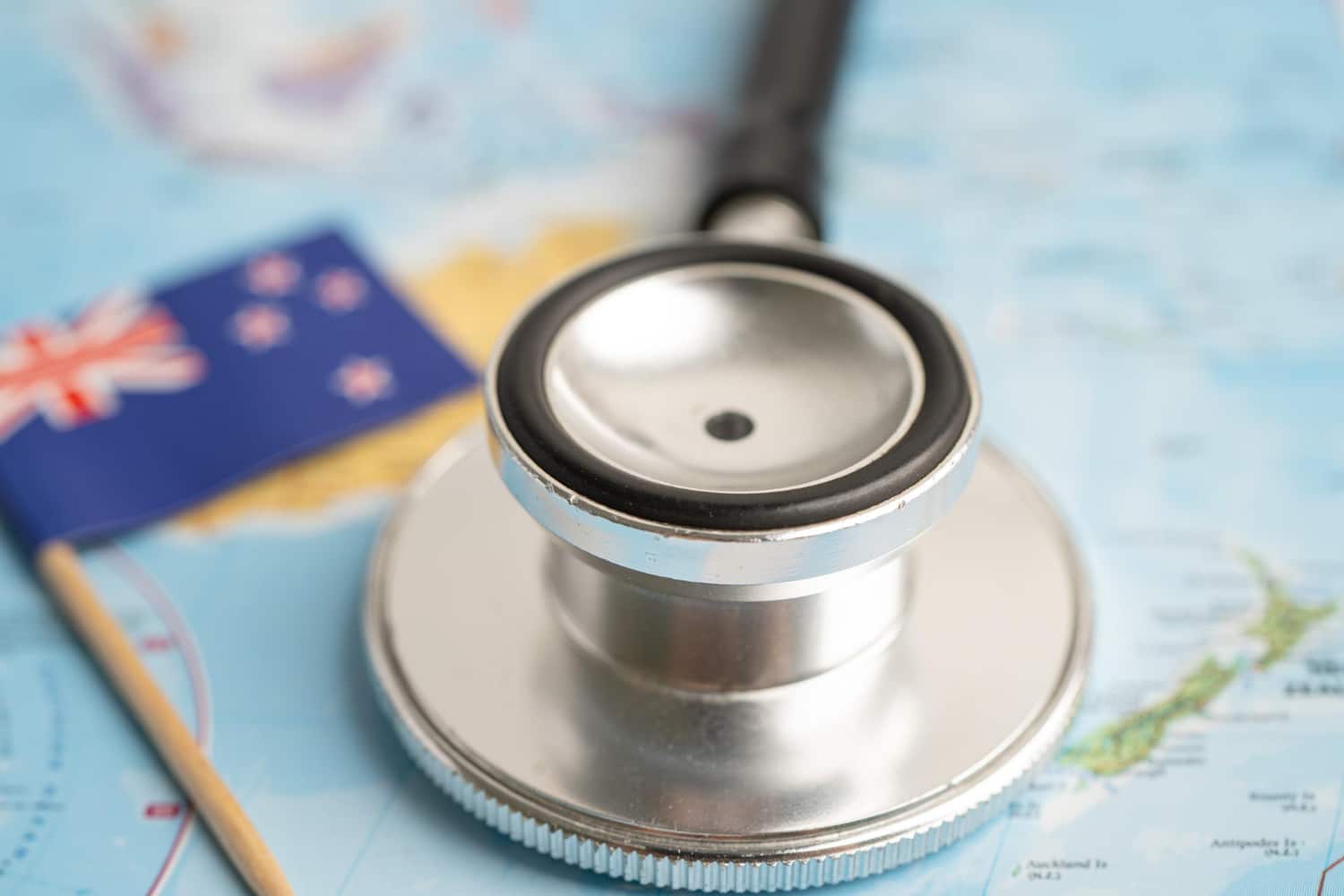Everything you need to know about the Global Health Insurance Card (GHIC)

The Global Health Insurance Card (GHIC) is an essential travel companion for UK residents who need healthcare while visiting EU countries.
This card provides access to medically necessary healthcare services, ensuring that UK citizens continue to receive essential healthcare during their time abroad.
The introduction of the GHIC, which replaced the European Health Insurance Card (EHIC) for UK citizens post-Brexit, ensures that the UK remains part of reciprocal healthcare agreements with the EU.
Whether you’re planning a short vacation, working, or living abroad temporarily, the GHIC offers protection against unforeseen medical costs.
This article provides everything you need to know about the GHIC: what it covers, how to apply, its differences from travel insurance, and how it compares to the old EHIC.
Understanding these aspects can ensure that you remain protected while traveling within the European Union. For more details about the GHIC and its benefits, you can visit the official NHS GHIC page.
What is the Global Health Insurance Card (GHIC)?
The Global Health Insurance Card (GHIC) is a free card that allows UK residents access to state-provided healthcare when traveling in EU countries.
It is part of the UK’s post-Brexit arrangements, which ensures that UK citizens still have access to essential healthcare while abroad, similar to how they would if they were in the UK.
The GHIC covers a wide range of healthcare services, such as emergency treatments, routine doctor’s visits, and hospital care.
However, it’s important to note that the card only covers necessary medical care. This means that the GHIC is not designed to cover all healthcare services, such as private treatments or repatriation costs, which may require additional travel insurance.
For more detailed information on the Global Health Insurance Card, visit Gov.uk’s GHIC announcement.
How does the GHIC work?
The GHIC works by allowing UK residents to receive state healthcare in any EU country that has a reciprocal agreement with the UK.
In these countries, the GHIC provides coverage for healthcare costs that would be free or subsidized for local residents.
However, the level of coverage can vary by country, and not all healthcare services are covered.
For example, in some countries, you may only be covered for urgent medical treatment, while in others, you may be entitled to a broader range of healthcare services.
You should always check the specific terms and conditions for each country to ensure that you are adequately covered.

How to apply for the Global Health Insurance Card
Applying for a GHIC is a simple and straightforward process, and it is free of charge. The application can be completed online, and the card is usually delivered within a few weeks. Here’s a step-by-step guide to applying for a GHIC:
- Visit the Official NHS Website: Go to the NHS website and navigate to the page dedicated to the GHIC application.
- Provide Your Personal Information: You’ll need to enter basic details such as your name, address, date of birth, and National Insurance number. Make sure that your information matches the details on your passport or official documents to avoid any issues with your application.
- Submit Your Application: Once you’ve filled in the necessary details, submit your application online. The process is free and there are no hidden fees.
- Wait for Your Card: Once your application is approved, your GHIC will be mailed to your registered address. This can take up to 10 working days.
You can apply directly through the official NHS GHIC page.
What is covered by the Global Health Insurance Card?
The GHIC covers a range of medically necessary treatments in EU countries, but it’s important to understand exactly what’s included. Here are the general types of care covered by the GHIC:
- Emergency Treatment: If you fall ill or suffer an injury while abroad, the GHIC provides coverage for emergency medical care in EU countries. This includes hospital treatment and surgeries required to stabilize your condition.
- Routine Healthcare: In some countries, the GHIC can cover routine care, such as doctor’s appointments and treatment for chronic conditions, though this depends on local regulations.
- Maternity Care: The GHIC may also cover necessary maternity services, including prenatal care and childbirth, but it’s important to check specific country details.
- Prescription Medications: The card may cover the cost of prescribed medicines, depending on the country’s healthcare system and the specific treatment required.
- Dialysis and Long-Term Conditions: If you need ongoing treatment, such as dialysis for kidney conditions, the GHIC can provide coverage for essential care during your stay abroad.
It’s important to note that the GHIC does not cover private medical care, repatriation (transport back to the UK), or medical costs for non-essential treatments.
For comprehensive coverage, especially for private treatments or repatriation, additional travel insurance may be necessary.
GHIC vs EHIC: what’s the difference?
The GHIC is a successor to the European Health Insurance Card (EHIC), which was available to UK residents prior to Brexit.
While both cards provide similar benefits in terms of access to state-funded healthcare in EU countries, there are a few key differences:
While the EHIC was phased out after the Brexit transition period, the GHIC offers similar benefits but applies to more recent agreements between the UK and EU countries.
The limitations of the GHIC
While the GHIC is a useful tool for accessing emergency or necessary healthcare abroad, it is not a substitute for comprehensive travel insurance. There are several key limitations of the GHIC:
- Private Healthcare: The GHIC will not cover costs incurred for private healthcare treatments. If you need private care while abroad, you will need to pay out of pocket or rely on travel insurance to cover the costs.
- Repatriation Costs: The GHIC does not cover the costs of repatriation (getting you back to the UK in case of serious illness or injury). You will need travel insurance for this service.
- Treatment Not Covered by Local Healthcare Systems: While the GHIC covers necessary medical care, some non-urgent treatments may not be included, depending on the local healthcare system in the country you are visiting.
Do you need travel insurance With GHIC?
While the GHIC provides essential healthcare cover in EU countries, it is important to note that it is not a replacement for travel insurance. Travel insurance provides additional benefits that the GHIC does not cover, such as:
- Coverage for Private Medical Treatment: The GHIC only covers state-funded healthcare. If you require private medical treatment, you will need to rely on your travel insurance.
- Trip Cancellations and Lost Luggage: Travel insurance can cover the costs associated with trip cancellations, lost luggage, and other issues unrelated to health care that may arise during your trip.
- Repatriation Costs: As mentioned earlier, repatriation costs are not covered by the GHIC. Travel insurance can help ensure you are brought back to the UK in the event of a serious health issue.
For additional protection, it’s highly recommended to take out comprehensive travel insurance to cover any medical or travel-related emergencies that the GHIC does not address.
Key Global Health Insurance Card (GHIC) statistics
These statistics demonstrate the significant impact the GHIC has had in ensuring continued access to healthcare for UK citizens traveling within the EU and beyond.
FAQ section
- What is the GHIC?
The Global Health Insurance Card (GHIC) is a free card that provides UK residents with access to state-provided healthcare when visiting EU countries. It covers medically necessary treatment during a temporary stay abroad.
- How do I apply for a GHIC?
You can apply for a GHIC online through the NHS website. The application is free and takes only a few minutes to complete.
- What does the GHIC cover?
The GHIC covers emergency medical care, necessary treatments, and hospital stays. It does not cover private healthcare, repatriation, or non-essential treatments.
- Is the GHIC the same as travel insurance?
No, the GHIC only covers healthcare provided by the state in EU countries. Travel insurance is recommended to cover additional services like private care, cancellations, and repatriation.
- How long does it take to get a GHIC?
Once your application is approved, your GHIC should arrive within 10–15 days. You can check the status of your application online.

The Global Health Insurance Card (GHIC) is an essential tool for UK residents traveling within the European Union, ensuring that they have access to necessary healthcare while abroad.
While it offers important coverage for emergency medical treatment and essential care, it does not replace comprehensive travel insurance, which provides added protection for things like private healthcare and repatriation.
By understanding what the GHIC covers and its limitations, you can make informed decisions about your healthcare needs while traveling.
For more information, don’t hesitate to explore official sources such as the NHS GHIC page.





